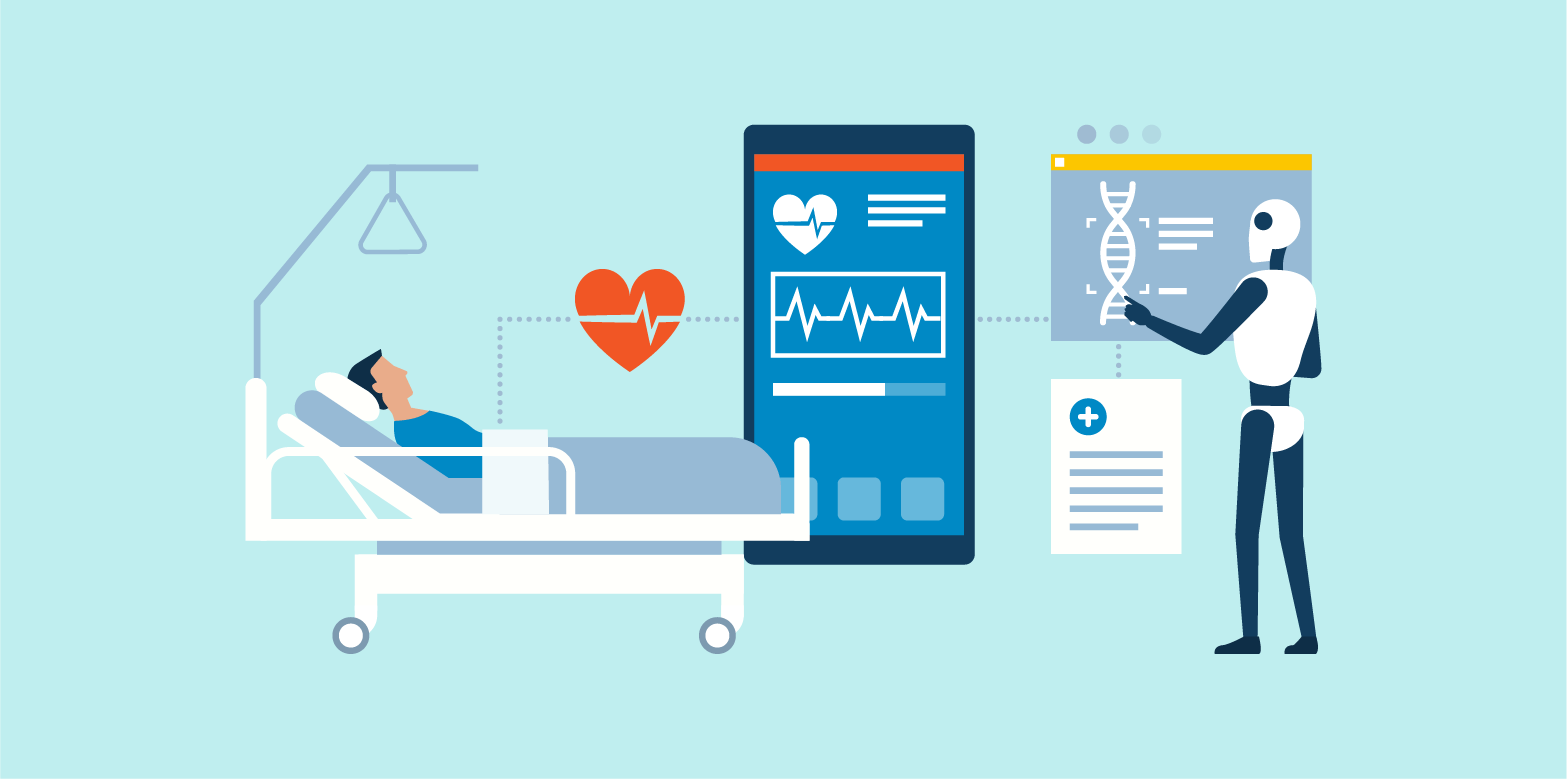Facial Recognition in Healthcare: Unlocking Potential Medical Applications
ALCHERA
August 14, 2023
August 14, 2023
Exploring the Role and Applications of Facial Recognition in the Healthcare Sector
Table of Contents
Understanding AI Facial Recognition Technology: How It Works and Is Utilized
The Role of Facial Recognition in Healthcare
Potential Applications of Facial Recognition in Healthcare
- Patient identification
- Disease detection and monitoring
- Mental health assessment
- Remote patient monitoring
- AIIR Scout by ALCHERA
The Future of Facial Recognition in Healthcare
- Potential future applications of facial recognition in healthcare and technologies
- Discussion on the ethical considerations of facial recognition in healthcare and challenges ahead
- Exploration of how facial recognition could transform the healthcare industry
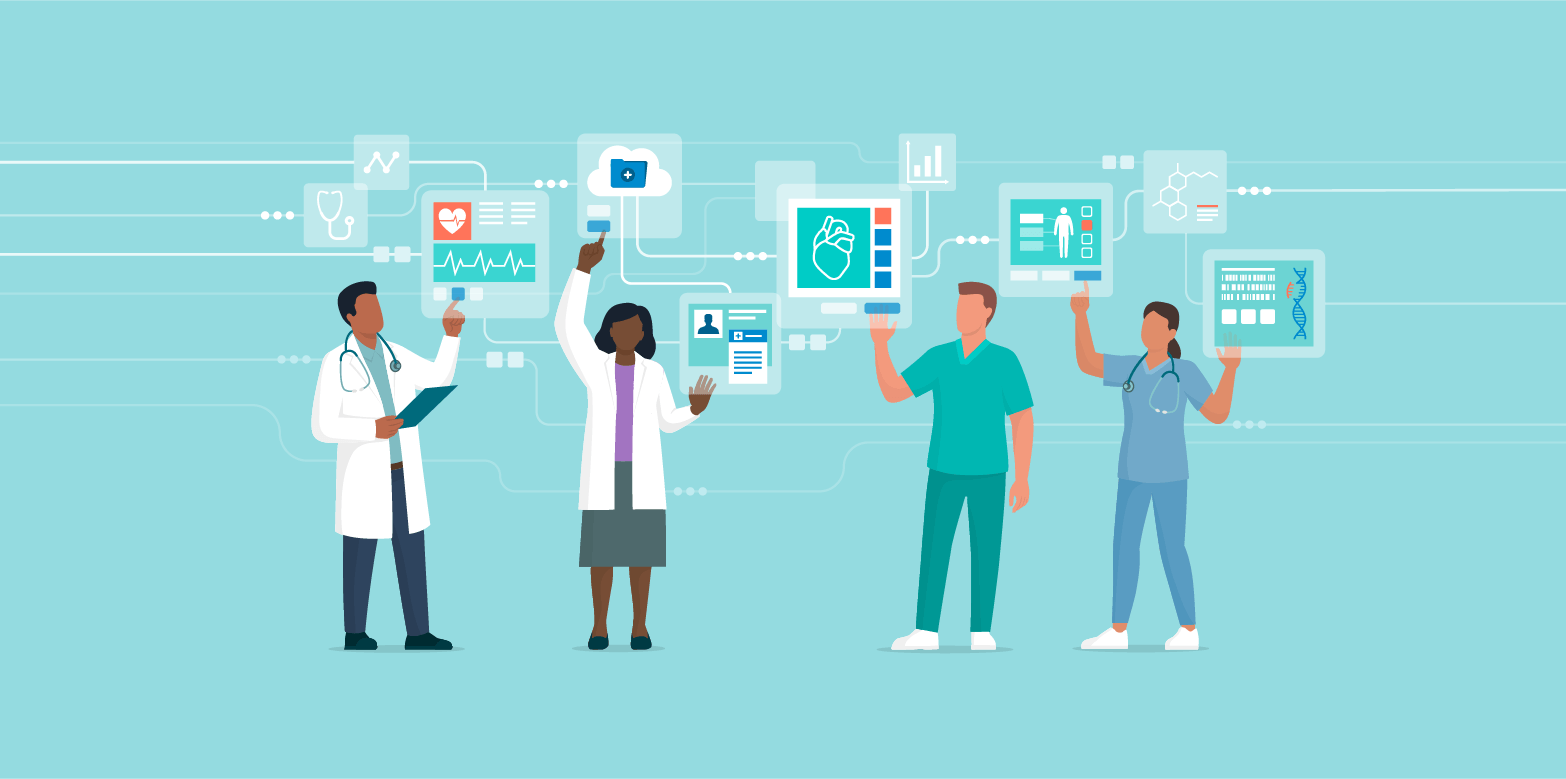
AI facial recognition technology, once the object of science fiction, has now found its way into various aspects of our daily lives. Its impact is particularly significant in the healthcare sector, where it holds enormous potential to transform services and patient experiences. This blog post delves into the intricacies of AI facial recognition technology, its role in healthcare, potential applications, and what the future holds.
Understanding AI Facial Recognition Technology: How It Works and Is Utilized
AI facial recognition technology is a fascinating and complex innovation that has dramatically transformed our interaction with the world in recent years. In essence, this technology works by comparing selected facial features from a given image with faces within a database. It uses biometrics to map facial features from an image or video, comparing this information with the stored facial database to find a match and thus identify a person.
The functionality of AI facial recognition systems has been greatly enhanced with advancements in AI and machine learning. AI algorithms, specifically deep learning models, are at the heart of these systems. Deep learning models use neural networks with several layers (hence the “deep” in “deep learning”) to analyze faces. They can learn and improve over time, enabling them to recognize and differentiate faces even under different lighting conditions or angles or when some features are obscured. These systems don't just recognize faces; they understand them, recognizing small changes that can't be easily seen by the human eye.
Read more about how facial recognition works here:
- Understanding Machine Learning in Facial and Video Recognition: Unraveling the Basics
- Face Recognition AI for Financial Sector - Internal Control
But the scope of AI facial recognition technology extends far beyond individual identification. It is being increasingly adopted across various industries, reshaping business practices and customer experiences. In retail, for example, facial recognition is used to analyze customer behavior and preferences, providing personalized shopping experiences. In law enforcement, it serves as a tool for identifying criminals and finding missing persons. The travel and hospitality industry uses it for seamless check-ins and to enhance customer service. And of course, in the healthcare sector, facial recognition holds promise for improving patient safety, disease detection, and overall care delivery.
An understanding of these various applications in diverse fields should highlight the broad potential of facial recognition technology: Not only does it have the power to enhance security and convenience, but also it has the potential to revolutionize areas of our lives we've just begun to consider. Technology, which is continually evolving, is set to become even more integral to our society in the years to come.
The Role of Facial Recognition in Healthcare
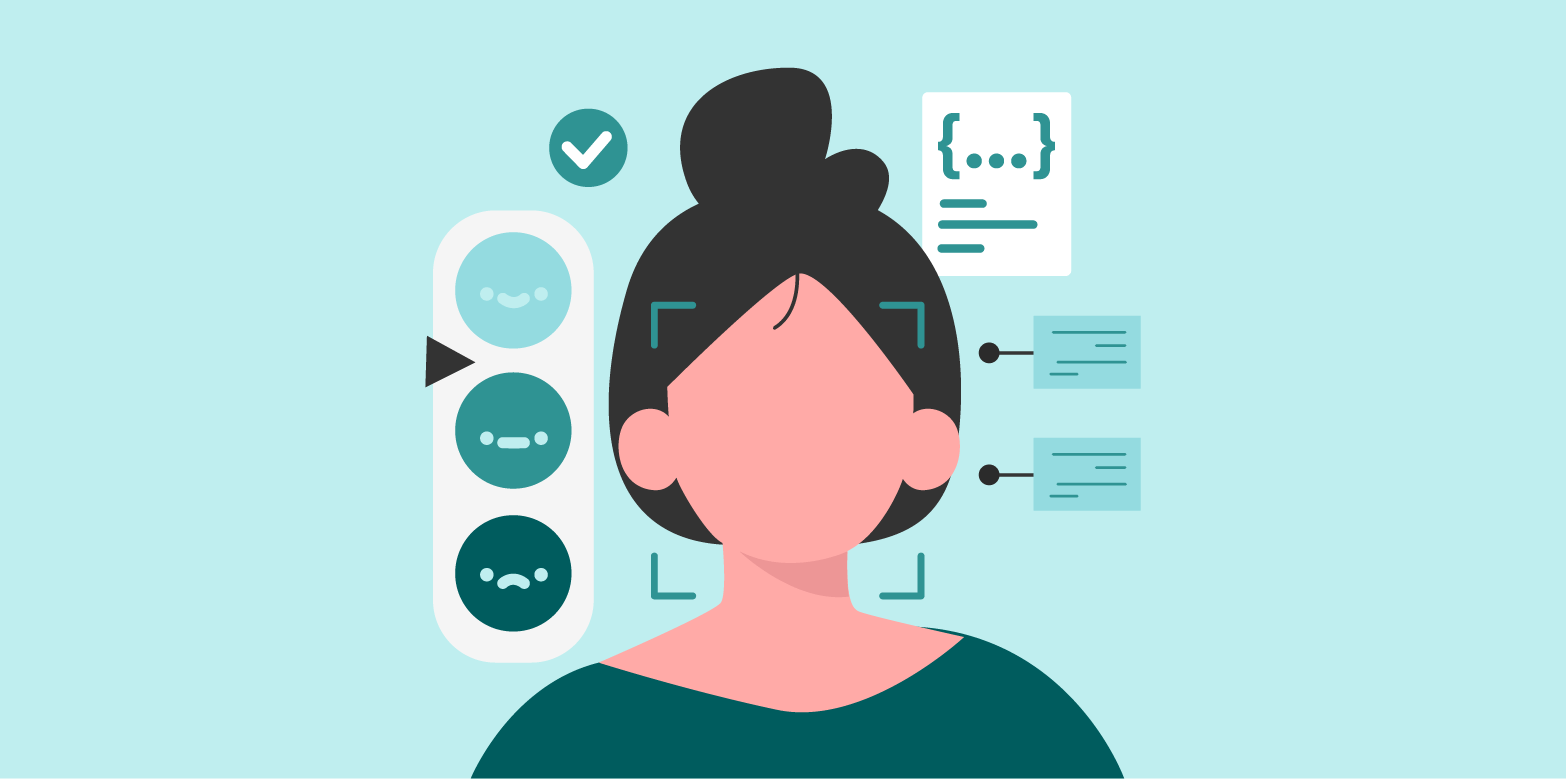
AI facial recognition technology offers multifaceted benefits, from enhancing patient identification processes to enabling early disease detection and monitoring.
Primarily, healthcare facilities are increasingly harnessing AI facial recognition technology to establish accurate patient identification. As per the ECRI Institute, patient misidentification poses a substantial risk to healthcare quality, indicating the magnitude of the problem this technology can help resolve. By accurately identifying patients at each care point, the technology reduces misidentification risks, curtailing potential medical errors.
Apart from patient identification, facial recognition is pivotal in disease detection and monitoring. Certain diseases, including genetic conditions and Parkinson's, manifest in subtle changes in facial characteristics. These minor changes are early signs, often undetectable to the human eye, that can be identified through AI facial recognition technology, enabling timely intervention and treatment.
Another burgeoning application of facial recognition is within the mental health domain. The technology can pick up on nuanced shifts in patients' facial expressions, potentially indicative of underlying emotional turmoil or mental health issues. This detection capability allows healthcare providers to tailor care more proactively and individually.
The integration of facial recognition into healthcare systems so far appears promising. Companies like ALCHERA are crafting AI facial recognition technologies exclusively for healthcare applications.
Telemedicine platforms are also adopting facial recognition to verify patient identities, reinforcing privacy and security in the expanding virtual care environment. Additionally, AI-driven facial recognition algorithms are increasingly being used to examine patients' facial images for early disease signs, highlighting the technology's potential for preventative healthcare.
Potential Applications of Facial Recognition in Healthcare
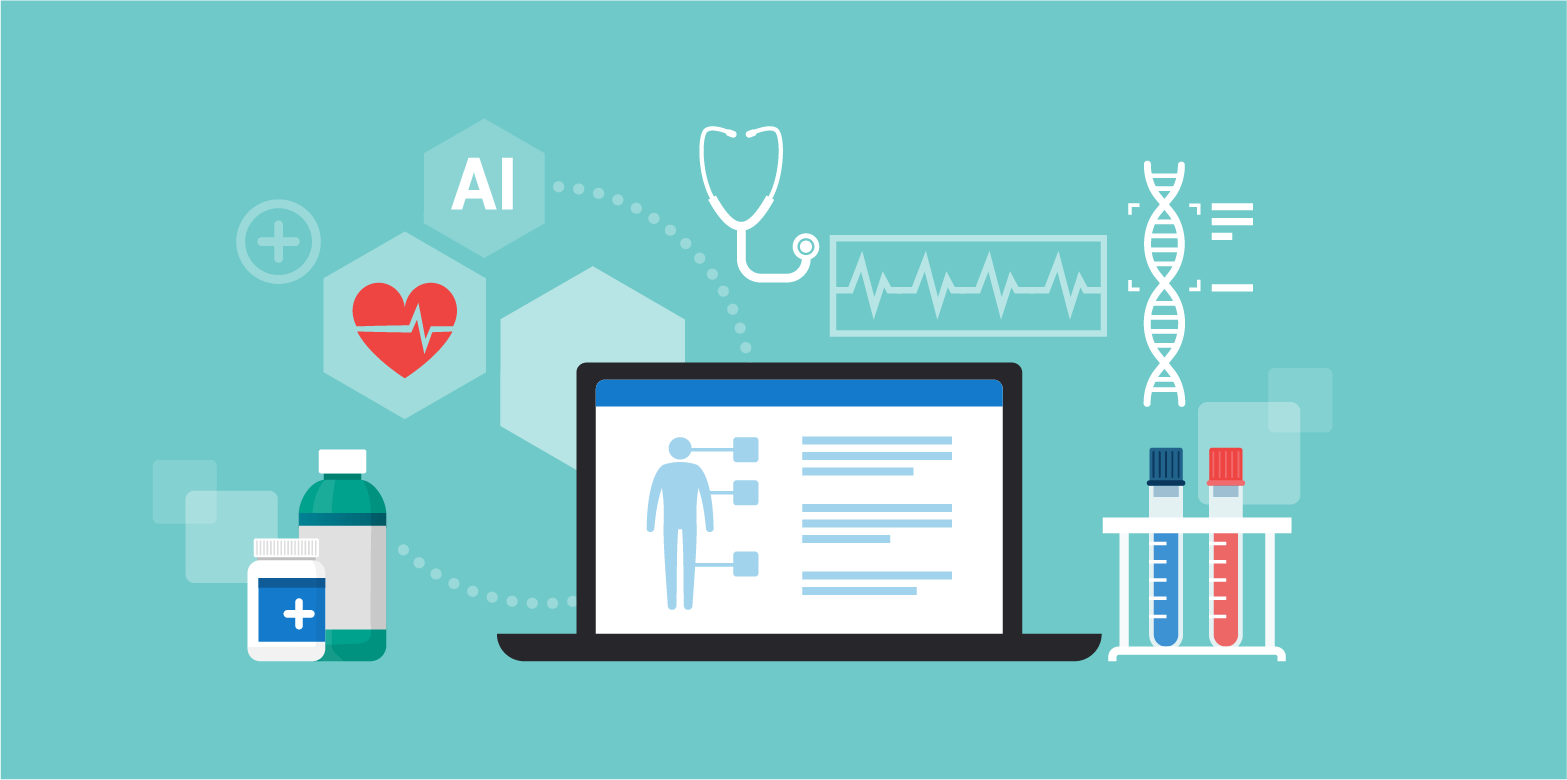
Application of facial recognition in healthcare: patient identification
A paramount application of AI facial recognition technology in healthcare is in the arena of patient identification.
Improving patient safety through verification: The identification process is a critical factor in patient safety. The potential for human error in manual identification processes is significant. However, by utilizing AI facial recognition technology, the risks of misidentification can be dramatically reduced. This improvement in accuracy ensures that patients receive the appropriate care based on their unique medical histories, eliminating medical errors linked to patient misidentification.
Enhancing data management and efficiency: In addition to enhancing safety, facial recognition can improve data management and operational efficiency within healthcare facilities. By accurately identifying patients, healthcare professionals can quickly and securely access their medical records. This streamlined process reduces waiting times and increases overall efficiency.
Application of facial recognition in healthcare: disease detection and monitoring
AI facial recognition technology can also play a crucial role in disease detection and monitoring.
Detecting physical symptoms of diseases: Certain conditions manifest physical symptoms visibly on a patient's face. Advanced AI facial recognition technology can detect these subtle changes, potentially catching early signs of diseases like Parkinson's and certain genetic conditions. This early detection can lead to early intervention and, potentially, better health outcomes.
Tracking patient progress over time: Facial recognition can also be employed to track the progress of disease treatment over time. This application allows healthcare providers to quantitatively assess the efficacy of treatments and adjust them as necessary.
Application of facial recognition in healthcare: mental health assessment
Facial recognition holds substantial promise in the realm of mental health assessment.
Detecting emotional cues indicating potential mental health issues: Changes in facial expressions can signify emotional distress. AI facial recognition technology can detect these subtle emotional cues, allowing mental health professionals to identify and address potential issues more effectively.
Monitoring patient mood and response to treatment: As therapy progresses, AI facial recognition technology can help monitor a patient's mood and response to treatment, leading to more personalized and effective care.
Application of facial recognition in healthcare: remote patient monitoring
With the rise of telemedicine, AI facial recognition technology also finds its place in remote patient monitoring.
Enabling home-based healthcare services: Home-based healthcare is a rising trend, especially in the wake of the recent pandemic. Facial recognition can authenticate patient identities during virtual consultations, ensuring privacy and security.
Increasing accessibility to healthcare: Remote patient monitoring enables patients who live far from healthcare facilities or those who are house-bound to access quality healthcare. AI facial recognition technology can aid in patient identification and monitoring, making healthcare more accessible to these populations.
Application of facial recognition in healthcare: AIIR Scout by ALCHERA
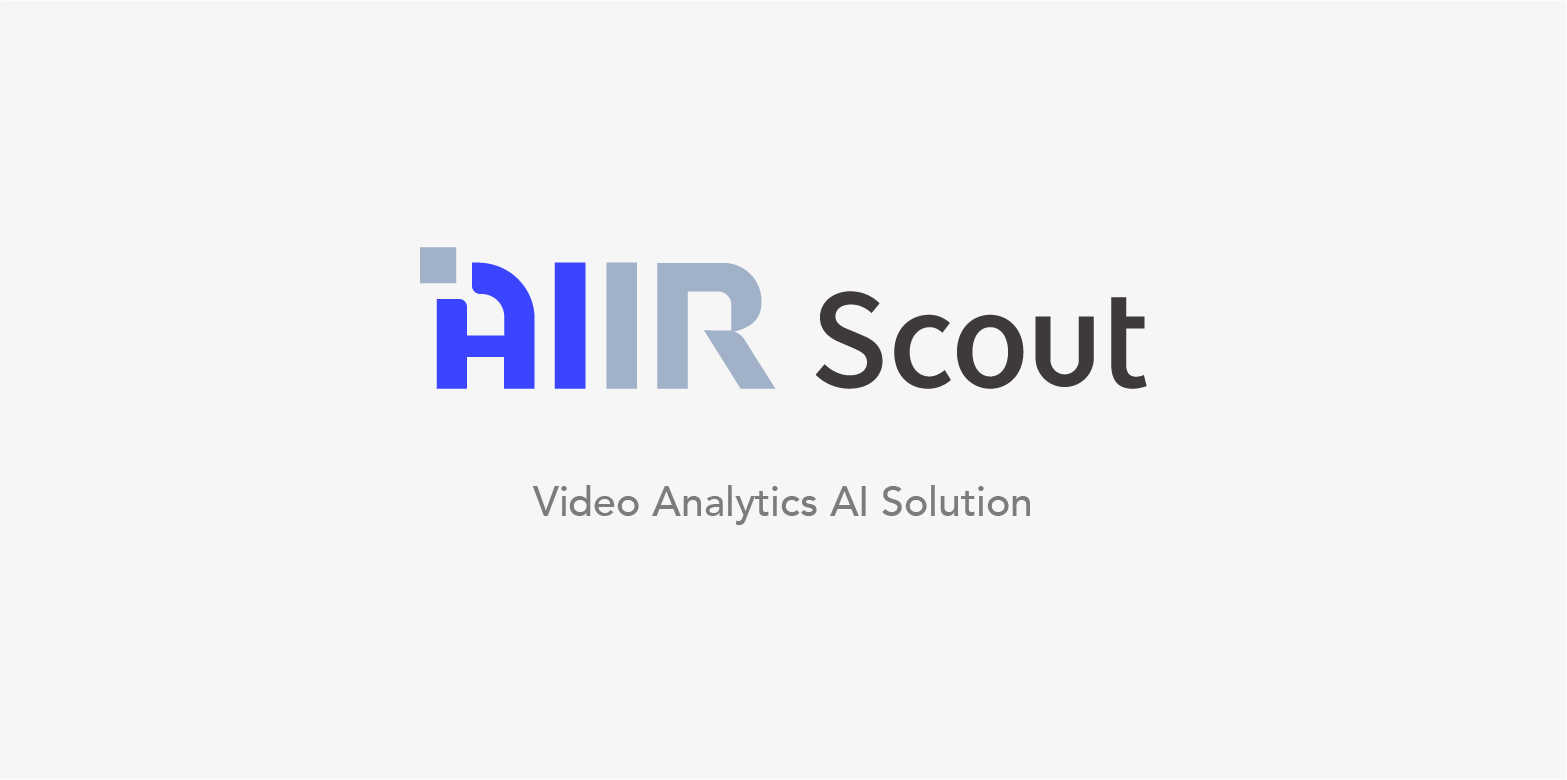
AIIR Scout by ALCHERA is a cutting-edge video analytics and facial recognition AI solution that revolutionizes security and surveillance systems. Leveraging the power of artificial intelligence, AIIR Scout offers unparalleled accuracy and efficiency in monitoring and identifying individuals within a monitored environment. AIIR Scout aims to provide cutting-edge solutions to many contemporary challenges.
The system is designed to be adaptable and flexible, which makes it highly suitable for different contexts. By combining advanced video analytics and facial recognition technology, AIIR Scout is set to revolutionize patient care, enhance hospital security, and optimize operational efficiency.
AIIR Scout for senior care
Furthermore, AIIR Scout is a perfect solution for senior care. Falls are one of the most common hazards for seniors, leading to significant injuries and adversely affecting quality of life. AIIR Scout by ALCHERA is equipped with advanced capabilities that could potentially address this issue, bolstering safety measures in senior care settings.
AIIR Scout uses advanced AI algorithms, which, when combined with its AI facial recognition technology, can monitor the activities of seniors in real time. The system can be trained to recognize various patterns of movement, including those that precede or indicate a fall. For instance, it could detect a sudden downward motion, changes in posture, or unusual inactivity that might follow a fall.
Once a potential fall is detected, AIIR Scout can immediately alert caregivers or the medical staff at the facility. This enables rapid response, which is often crucial in minimizing the impact of a fall. Quick medical attention can prevent the escalation of injuries, reduce hospitalization rates, and ultimately improve recovery outcomes.
Moreover, AIIR Scout's capability extends beyond immediate detection and alerting. It can also help collect valuable data over time. By continuously monitoring seniors' activities, it can identify patterns or changes in behavior that might increase the risk of falls. For instance, it could flag issues like decreased activity levels, increased restlessness, or changes in gait. These insights could allow healthcare professionals to preemptively address fall risks, for example by adjusting a care plan or intervening with physical therapy.
The ability to detect falls is not just about response and intervention; it's also about preserving the dignity and independence of seniors. Falls can often lead seniors to feel vulnerable or scared of being alone. Knowing that a system like AIIR Scout is there to monitor their safety can provide reassurance and confidence, enhancing their overall well-being.
AIIR Scout by ALCHERA can play a significant role in enhancing the safety of seniors by accurately detecting falls and providing data for preemptive care. As such, it could become an integral part of comprehensive senior care, promoting better health outcomes, increased safety, and improved quality of life for seniors.
Efficient patient identification and tracking
AIIR Scout's facial recognition feature simplifies patient identification and tracking throughout the hospital. By securely storing biometric data, the system can accurately recognize patients, reducing the risk of misidentification and streamlining the admission and discharge processes. This enhances the overall patient experience and minimizes administrative errors, allowing healthcare professionals to focus more on providing quality care.
Enhanced patient safety and security
In healthcare facilities, patient safety is of paramount importance. AIIR Scout's video analytics capabilities allow for real-time monitoring of patient areas, enabling staff to promptly detect and respond to potential safety concerns. The system can identify unusual activities, monitor patient movements, and notify medical personnel of any anomalies, ensuring a proactive and vigilant approach to patient safety.
Visitor management and access control
Managing visitor access is critical in healthcare settings to maintain security and protect patient confidentiality. AIIR Scout's facial recognition technology enables seamless visitor registration, enhancing access control within a facility. Authorized personnel can be easily identified, while unauthorized access attempts are promptly flagged, ensuring a safe and secure environment for patients and staff.
The Future of Facial Recognition in Healthcare
AI facial recognition technology's applications within the healthcare industry are ever-evolving, paving the way for a future wherein it becomes instrumental in delivering personalized, efficient, and secure patient care.
Potential future applications of facial recognition in healthcare and technologies
With the continuous development of AI and machine learning algorithms, AI facial recognition technology's potential applications in healthcare are expanding. For instance, the use of facial recognition in genomics could usher in an era of "facial phenotyping," where certain genetic conditions could be identified through facial features. Moreover, the integration of facial recognition with wearable technology could revolutionize patient monitoring, allowing real-time health status updates and more responsive care.
Another promising application lies in the field of telemedicine, wherein facial recognition could provide secure patient identification, ensuring that medical information is shared only with the verified patient. It could also help in assessing patient health remotely by analyzing facial cues for signs of stress, pain, or other symptoms.
Discussion on the ethical considerations of facial recognition in healthcare and challenges ahead
AI facial recognition technology in healthcare harbors vast potential, but it must be approached with caution due to ethical and privacy concerns. Safeguarding patient data is crucial, necessitating responsible technology use and robust protective measures, along with obtaining patient consent. To avoid reinforcing healthcare disparities or discrimination, explicit policies and regulations should guide implementation, balancing innovation with patient protection.
Despite the challenges, AI facial recognition technology can revolutionize healthcare by enhancing patient safety, improving diagnoses and treatments, and facilitating personalized care. Its potential to elevate the quality of care and enhance patient outcomes is invaluable. However, to fully realize its benefits, addressing privacy and bias concerns is essential. Secure data management and diverse training data are necessary to ensure accurate and fair results across all population groups.
Exploration of how facial recognition could transform the healthcare industry
Despite the challenges, the future of facial recognition in healthcare looks promising. By providing quick and accurate identification, facial recognition can improve patient safety and reduce administrative burdens, allowing healthcare professionals to devote more time to patient care. Its use in disease detection and monitoring could allow for early intervention, potentially improving patient outcomes.
In mental health care, the ability to identify subtle emotional cues could provide valuable insights into a patient's mental state, facilitating more responsive care. For elderly care, features like fall detection could significantly enhance patient safety. Overall, facial recognition could lead to a more personalized, effective, and secure healthcare system, driving the industry towards a future where technology and human care go hand in hand.
As we move forward, it's essential to strike a balance between leveraging AI facial recognition technology's benefits and addressing the ethical considerations it brings. By doing so, we can harness this technology to create a healthcare system that is capable of delivering superior patient care, bolstered by the power of AI and facial recognition.
...
...
